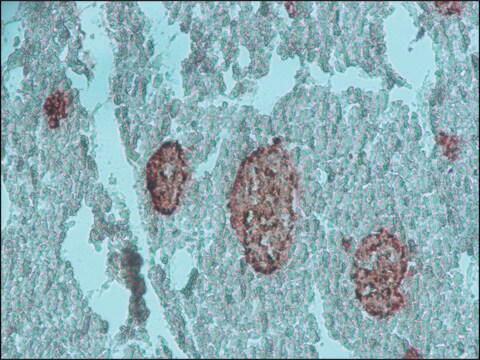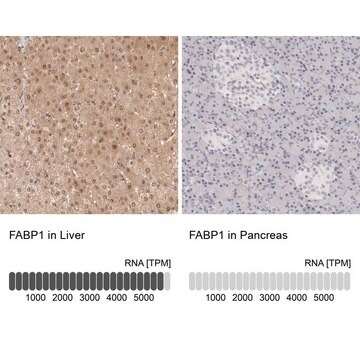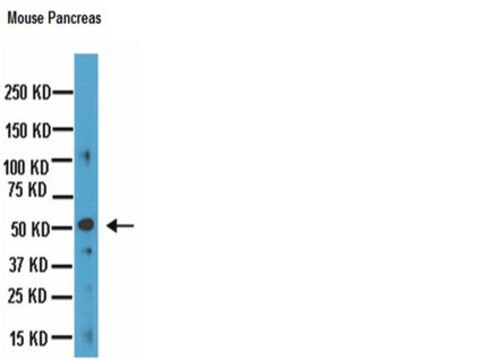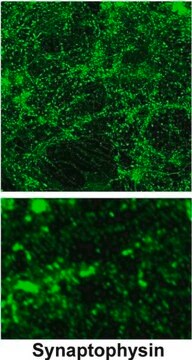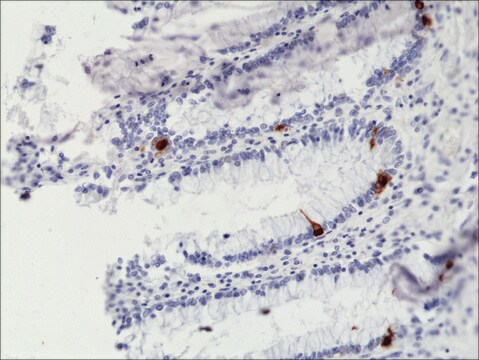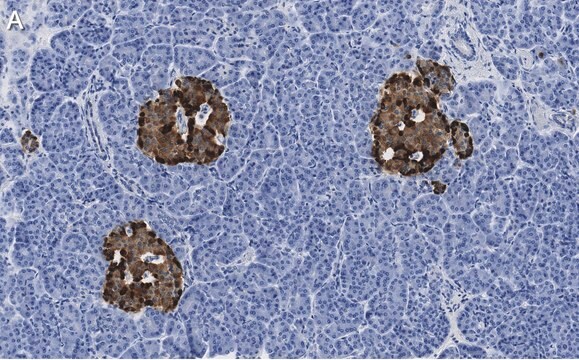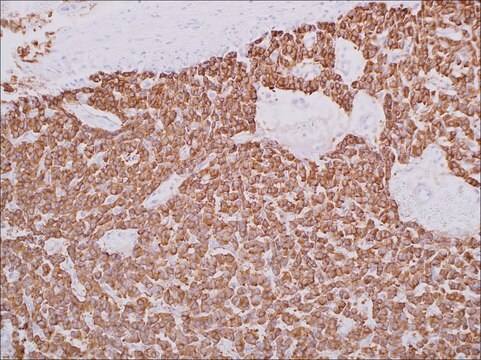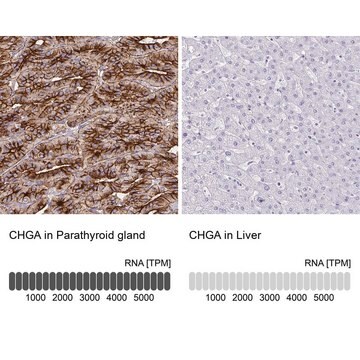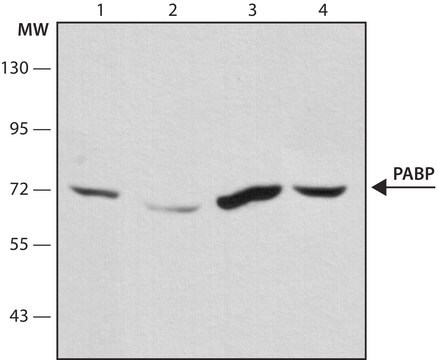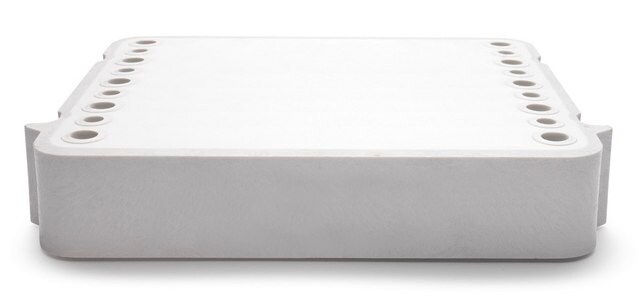SAB5500082
Anti-Chromogranin A antibody, Rabbit monoclonal
clone SP12, recombinant, expressed in proprietary host, tissue culture supernatant
About This Item
Recommended Products
biological source
rabbit
Quality Level
recombinant
expressed in proprietary host
conjugate
unconjugated
antibody form
tissue culture supernatant
antibody product type
primary antibodies
clone
SP12, monoclonal
species reactivity
human (tested)
species reactivity (predicted by homology)
bovine, pig
technique(s)
immunohistochemistry: 1:200
isotype
IgG
UniProt accession no.
shipped in
wet ice
storage temp.
2-8°C
target post-translational modification
unmodified
Gene Information
human ... CHGA(1113)
General description
Immunogen
Biochem/physiol Actions
Features and Benefits
Physical form
Disclaimer
Not finding the right product?
Try our Product Selector Tool.
Storage Class Code
10 - Combustible liquids
WGK
WGK 2
Flash Point(F)
Not applicable
Flash Point(C)
Not applicable
Regulatory Listings
Regulatory Listings are mainly provided for chemical products. Only limited information can be provided here for non-chemical products. No entry means none of the components are listed. It is the user’s obligation to ensure the safe and legal use of the product.
JAN Code
SAB5500082-100UL:
Choose from one of the most recent versions:
Certificates of Analysis (COA)
Don't see the Right Version?
If you require a particular version, you can look up a specific certificate by the Lot or Batch number.
Already Own This Product?
Find documentation for the products that you have recently purchased in the Document Library.
Global Trade Item Number
| SKU | GTIN |
|---|---|
| SAB5500082-100UL | 4061837833618 |
Our team of scientists has experience in all areas of research including Life Science, Material Science, Chemical Synthesis, Chromatography, Analytical and many others.
Contact Technical Service